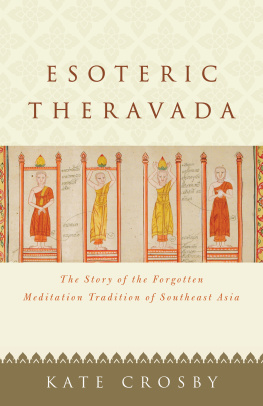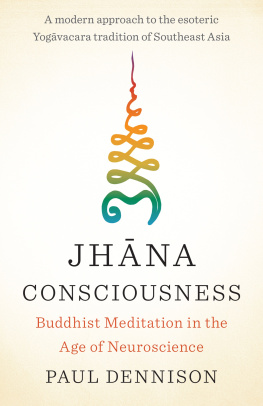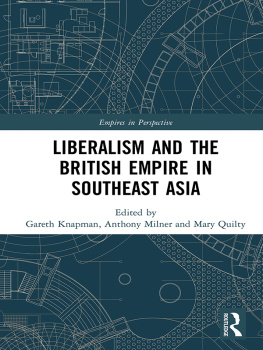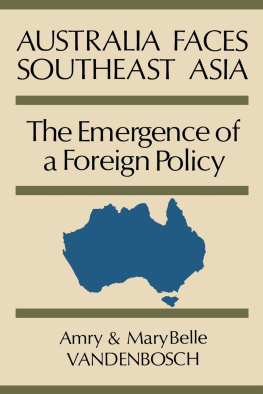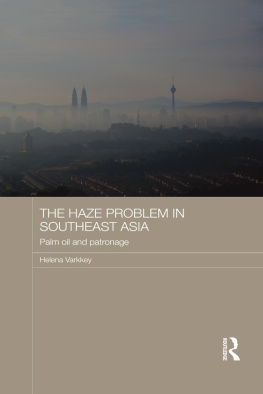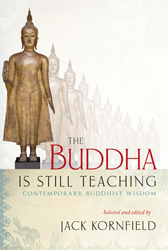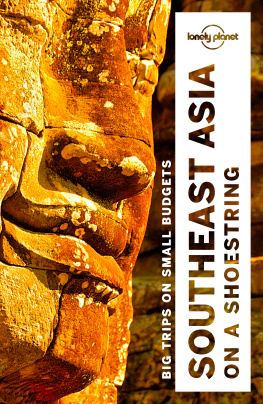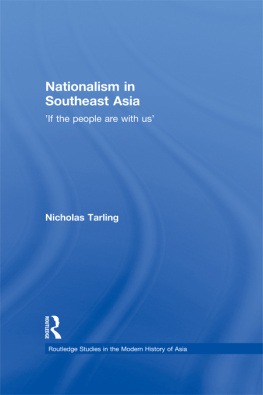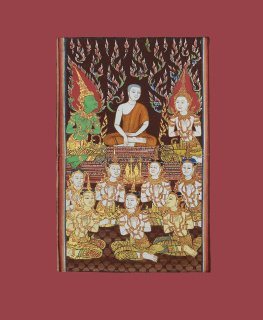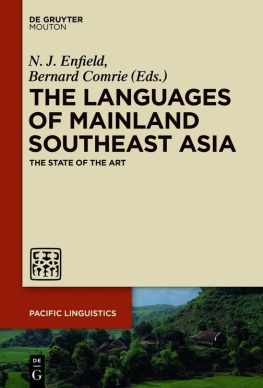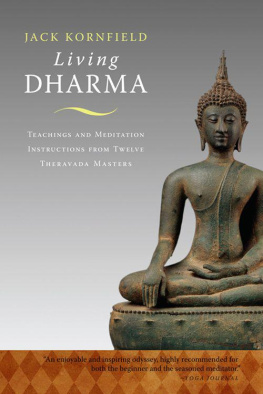Kate Crosby - Esoteric Theravada: The Story of the Forgotten Meditation Tradition of Southeast Asia
Here you can read online Kate Crosby - Esoteric Theravada: The Story of the Forgotten Meditation Tradition of Southeast Asia full text of the book (entire story) in english for free. Download pdf and epub, get meaning, cover and reviews about this ebook. year: 2020, publisher: Shambhala, genre: Religion. Description of the work, (preface) as well as reviews are available. Best literature library LitArk.com created for fans of good reading and offers a wide selection of genres:
Romance novel
Science fiction
Adventure
Detective
Science
History
Home and family
Prose
Art
Politics
Computer
Non-fiction
Religion
Business
Children
Humor
Choose a favorite category and find really read worthwhile books. Enjoy immersion in the world of imagination, feel the emotions of the characters or learn something new for yourself, make an fascinating discovery.
- Book:Esoteric Theravada: The Story of the Forgotten Meditation Tradition of Southeast Asia
- Author:
- Publisher:Shambhala
- Genre:
- Year:2020
- Rating:3 / 5
- Favourites:Add to favourites
- Your mark:
- 60
- 1
- 2
- 3
- 4
- 5
Esoteric Theravada: The Story of the Forgotten Meditation Tradition of Southeast Asia: summary, description and annotation
We offer to read an annotation, description, summary or preface (depends on what the author of the book "Esoteric Theravada: The Story of the Forgotten Meditation Tradition of Southeast Asia" wrote himself). If you haven't found the necessary information about the book — write in the comments, we will try to find it.
Kate Crosby: author's other books
Who wrote Esoteric Theravada: The Story of the Forgotten Meditation Tradition of Southeast Asia? Find out the surname, the name of the author of the book and a list of all author's works by series.
Esoteric Theravada: The Story of the Forgotten Meditation Tradition of Southeast Asia — read online for free the complete book (whole text) full work
Below is the text of the book, divided by pages. System saving the place of the last page read, allows you to conveniently read the book "Esoteric Theravada: The Story of the Forgotten Meditation Tradition of Southeast Asia" online for free, without having to search again every time where you left off. Put a bookmark, and you can go to the page where you finished reading at any time.
Font size:
Interval:
Bookmark:
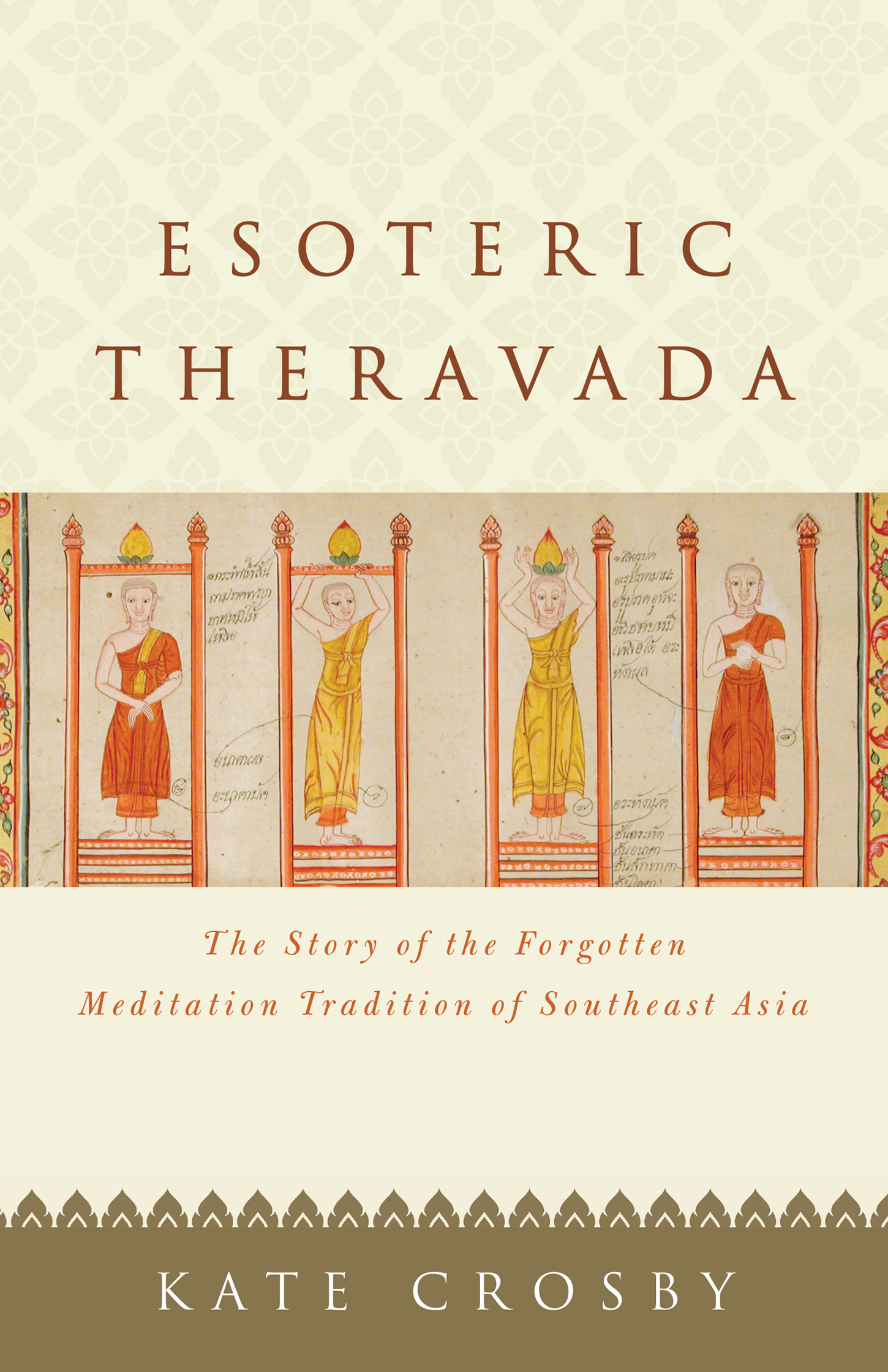
Crosbys acribic detective work has uncovered the principles of a hitherto almost forgotten meditation tradition that was called the old practices (born kammahna). The principles of born kammahna are hidden in texts abounding with metaphors and substitutions. Crosby unravels and explains these texts by entering thought modes of preindustrial times, mapping correspondences between parts of the body and mystical ideas, and using letter, sound, and number symbolism. By showing us the old practices, Crosby lays to rest the myth of a pure authentic original Theravada tradition, a myth that too long obscured the diversity of the past.
Barend Jan Terwiel, Emeritus Professor of Thai and Lao Languages and Literatures, Hamburg University
Kate Crosbys Esoteric Theravada is a fascinating and wide-ranging treatment of traditional born kammahna style meditation in Theravada Buddhism. Readable and accessible to anyone interested in meditation and an absolute goldmine for historians of Buddhism, this remarkable study of a meditation tradition, its texts, technologies, and the history of its decline gives us insight into the profound thought worlds of Buddhists who were on the losing side of the modernist reforms of Buddhism in the nineteenth and twentieth centuries. Crosbys rare combination of painstaking historical research, linguistic prowess, and engrossing ethnographic interviews in combination with her own experience as a practitioner of born meditation deftly opens up an important strand of the Theravada tradition that has too often been lost from view.
Anne Hansen, Professor of Southeast Asian History & Religious Studies, University of WisconsinMadison
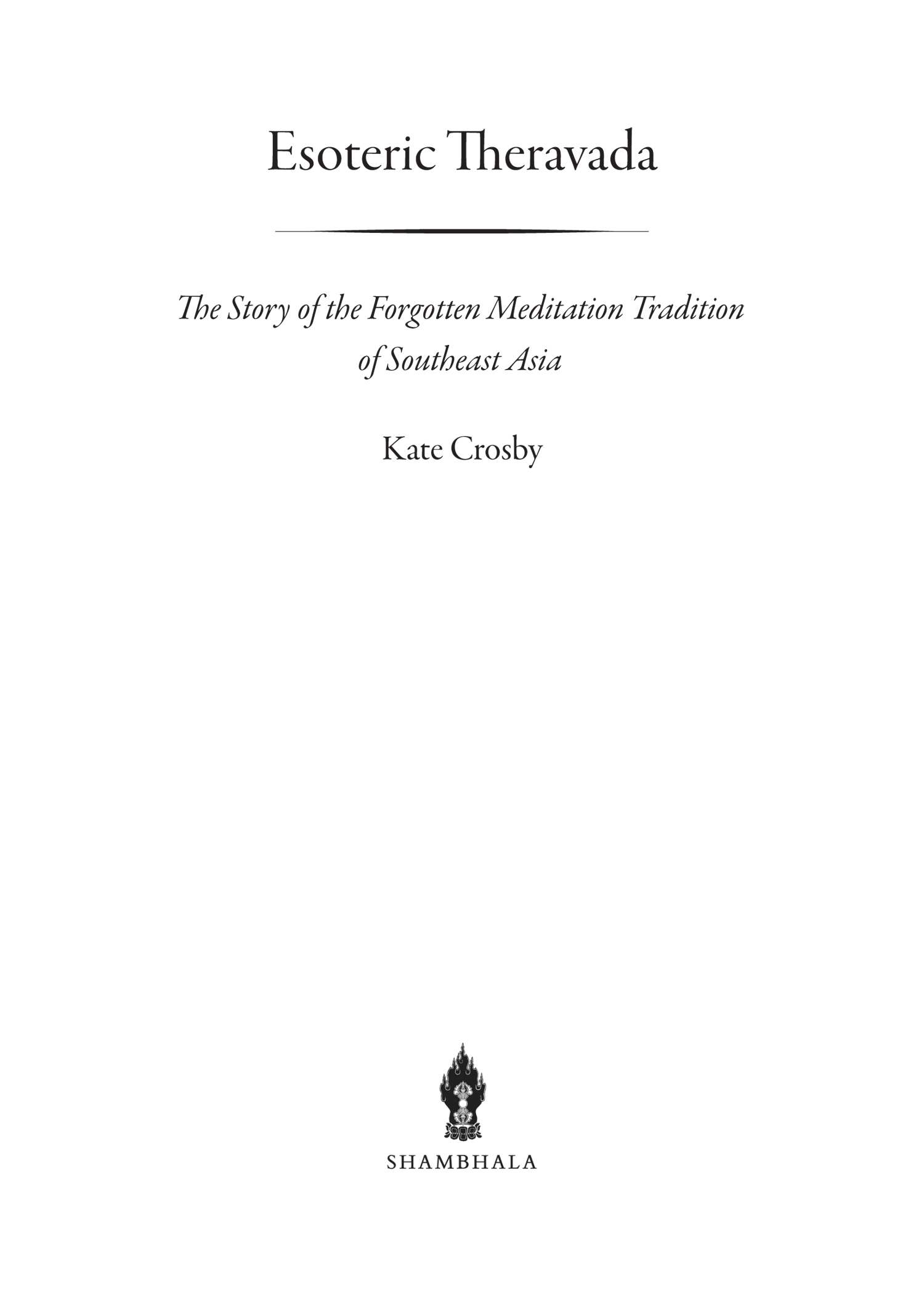
Shambhala Publications, Inc.
4720 Walnut Street
Boulder, Colorado 80301
www.shambhala.com
2020 by Kate Crosby
Some material in this book has been previously published or adapted, including substantial parts of chapters 4 and 5, from Traditional Theravada Meditation and Its Modern-Era Suppression (Buddha-dharma Centre of Hong Kong, 2013).
Cover art: bpk Bildagentur / Museum fr Asiatische Kunst, Staatliche
Museen, Berlin, Germany / Art Resource, NY
Cover design: Claudine Mansour Design
Interior design: Gopa & Ted2, Inc.
All rights reserved. No part of this book may be reproduced in any form or by any means, electronic or mechanical, including photocopying, recording, or by any information storage and retrieval system, without permission in writing from the publisher.
LIBRARY OF CONGRESS CATALOGING - IN - PUBLICATION DATA
Names: Crosby, Kate (Religion scholar), author.
Title: Esoteric Theravada: the story of the forgotten meditation tradition of Southeast Asia / Kate Crosby.
Description: First edition. | Boulder, Colorado: Shambhala Publications, Inc., [2020] | Includes bibliographical references and index.
Identifiers: LCCN 2020011074 | ISBN 9781611807943 (trade paperback)
eISBN9780834843073
Subjects: LCSH : Born kammahna. | Theravda BuddhismSoutheast AsiaHistory.
Classification: LCC BQ 5630. B 67 C 76 2020 | DDC 294.3/910959dc23
LC record available at https://lccn.loc.gov/2020011074
a_prh_5.6.0_c0_r0
In grateful and affectionate memory of
John Crosby (19352016)
Lance Cousins (19422015)
Surana Neil Burns (19652017)
Steven Collins (19512018)
Yey Oun Sophy (c. 19342019)


I offer my sincere thanks to Richard Gombrich, who, back in the early 1990s, first drew my attention to the meditation text, the Amatkaravaan; to the late Heinz Bechert, who wrote the brief entry that had caught Richards attention and encouraged me to undertake this research; and to Andrew Skilton and the late Lance Cousins, who both alerted me to the work of Franois Bizot. I was fortunate that in Lances final years he made time to discuss meditation with me, with a refreshing open-mindedness, a serious consideration of practice, and an inspiring facility for detailed engagement in Abhidhamma. It was only after his death that I came to understand the significance of the practice element in Lances approach. This was thanks to Grevel Lindop, Keith Munnings, and others of the Samatha Trust.
I would like to thank practitioners of meditation in Thailand and Cambodia for their assistance and support. While I name specific sources in the body of the text, I would like to highlight here the personal contributions of Ven. Veera Virandharo, former Director of the Dhammakaya International Society of the United Kingdom, and Ven. Veera Thanaveero of Wat Ratchasittharam, Thonburi. Of the many who have helped me in Cambodia, I would like to highlight the help of the late Achar Te Tong Yi, my teacher Ven. Neang Sam Ol, the late Yey Oun Sophy, and Yey Srean. I thank Ven. Uch Yoeurn for the repeated loan of his former kui, and Elizabeth Guthrie, John Marston, and the late Ian Harris for their kindness and expertise. I would also like to thank my long-time friends and occasional assistants, Long Sarou and Chea Bunnary.
Deserving of special mention are those who worked with me in Thailand and London on materials related to this tradition and shared my enthusiasm for putting together the puzzle: Phibul Choompolpaisal, Andrew Skilton, and Amal Gunasena. For encouragement on the subject over the years, I would like to thank Phyllis Granoff, Gregory Schopen, and Paul Dundas. For the past decade, I have benefited from membership of the Theravada Civilizations Project established by Juliane Schober and the late Steven Collins, and from Steves galvanizing comments and breathtaking enthusiasm. For their important work on the subject, as well as their kindness in sending me their writings, I thank Franois Bizot, Olivier de Bernon, Phibul Choompolpaisal, Oskar von Hinber, Franois Lagirarde, Mano (erstwhile) Mettanando Laohavanich, Andrew Skilton, Barend (Baas) Terwiel, and Kitchai Urkasame.
For help in access to resources and references, I thank Mike Charney, Romola Dane, Alastair Gornall, Jotika Khur-Yearn, Atsuko Naono, Liz Harris, and Pyi Phyo Kyaw, whom I also thank for her expertise in Abhidhamma and important help of various kinds. For their practical support, I thank Isara Treesahakiat, Kampol Treesahakiat, and Patcharin Yimpatna.
In helping me to develop the subject and my understanding over the past decade, I should additionally like thank the co-organizers, contributors, and audiences at conferences on variety in Theravada meditation and on Abhidhamma, at Kings College London in October 2014 and June 2015, at the cole franaise dExtrme-Orient in Siem Reap in July 2016, and at Shan State Buddhist University near Taunggyi in November 2019. The first three of these conferences were generously funded by Dhammakaya International Society of the United Kingdom and the Ji Chanqun Buddhist Studies funding of Kings College London. I am also grateful to David Germano, colleagues and students at the University of Virginia, Charlottesville, and Kurtis Schaeffer and Andrew Quintman, who organized the thought-provoking 2017 IABS panel on Literatures of Contemplation, as well as students at Kings and elsewhere, who all pushed me to think in different ways.
Font size:
Interval:
Bookmark:
Similar books «Esoteric Theravada: The Story of the Forgotten Meditation Tradition of Southeast Asia»
Look at similar books to Esoteric Theravada: The Story of the Forgotten Meditation Tradition of Southeast Asia. We have selected literature similar in name and meaning in the hope of providing readers with more options to find new, interesting, not yet read works.
Discussion, reviews of the book Esoteric Theravada: The Story of the Forgotten Meditation Tradition of Southeast Asia and just readers' own opinions. Leave your comments, write what you think about the work, its meaning or the main characters. Specify what exactly you liked and what you didn't like, and why you think so.

